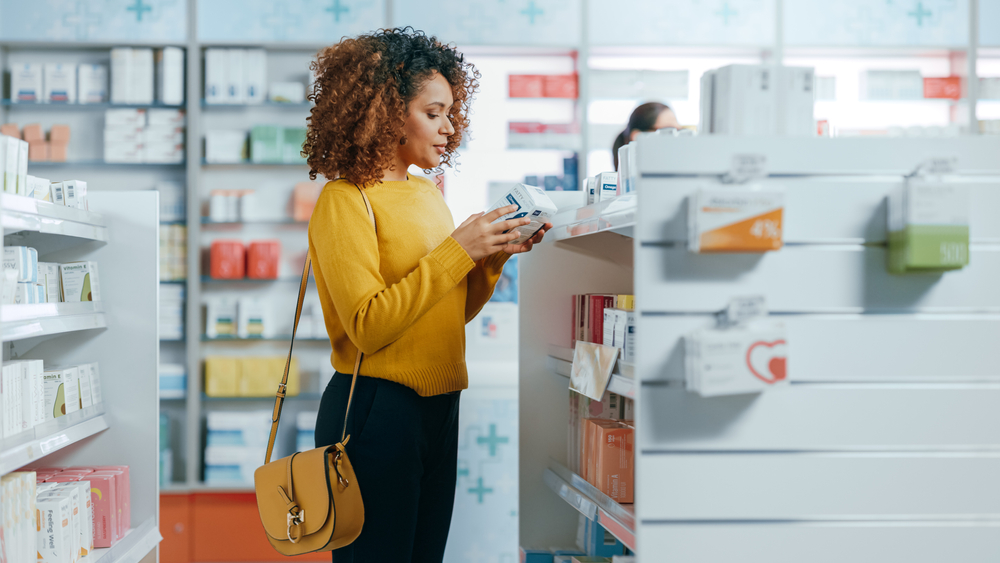As globalization and advancements in health sciences grow, pharmaceutical translation plays a vital role in public health worldwide. Every year, mistranslations in healthcare lead to critical misunderstandings, treatment errors, and even patient fatalities. To ensure safety, efficacy, and compliance across languages, pharmaceutical companies must rely on trusted localization partners that combine expert human translators with advanced AI technologies. While new AI-based translation technologies continue to gain popularity, the high-stakes nature of pharmaceutical translations means that experienced human linguists and subject matter experts are still the best way to ensure the most accurate and highest quality translations possible.
In this blog, we will explore why accuracy and human translation is essential for pharmaceuticals, and how exactly it impacts various stakeholders in the industry.
Precision Pharmaceutical Translations Matter in the Globally Regulated Markets
Globally distributed drug therapies and treatments must achieve regulatory compliance in every key market in which they enter. Regulatory bodies, such as the U.S. Food and Drug Administration (FDA) and the European Medicines Agency (EMA), require accurate translations of critical documents including clinical reports, product labeling, instructions for use (IFU) and regulatory submissions. These documents serve multiple stakeholders: doctors, patients, researchers, and legislators, ensuring they can access, understand, and act on vital information regardless of their language or cultural background.
Inaccurate translation of these documents can lead to significant consequences, such as delays in regulatory approvals, legal and financial repercussions, and, most critically, potential risks to patient safety. Regulatory authorities also require pharmaceutical companies to submit documents in multiple languages, a complex task given the technical nature of the content. Accurate translation in these cases ensures that the intended meaning is preserved, providing all stakeholders with the information needed to make informed decisions about the safety and efficacy of pharmaceutical products.
Why Patient Centricity is Crucial in Pharmaceutical Translations
Apart from regulatory requirements, high-quality translation is important for pharmaceutical companies to enable global accessibility and equity of healthcare and treatments. This stems from an abundance of caution regarding patient health and safety for drugs because inaccurate translations can lead to dangerous incidents, potentially putting lives in jeopardy. Although basic translations for related drug materials and documents are often available, the quality of these translations can be the difference between helping or hurting the patient.
In a recently published study on “Comprehension and usefulness of Spanish language health information about depression treatment,” Dr. Beatriz Manzor Mitrzyk’s highlights the importance of culturally and linguistically tailored health materials for Spanish-speaking patients managing depression. Her findings show that commonly used literal translations often fail to convey medical nuances or resonate culturally, leading to misunderstandings and poor treatment adherence. After a firsthand account of a Spanish speaking patient misusing their seizure medication due to poorly translated instructions, she advocates that “It is alarming that we have known for decades that the number and complexity of words, the font size and formatting of written health information can make the difference between understanding and misunderstanding it” (Shears 2024). No matter a patient’s language or cultural background, clear and understandable translations must be available to ensure the best care and positive patient health outcomes. While basic translations are often provided for commonly spoken languages, these materials are often outdated, one-dimensional and do not hold up to modern day translation and localization industry standards. By prioritizing human-centric pharmaceutical translations, companies can ensure health information is clear, relevant, and effective for supporting diverse patient populations.
Check out or White Paper on PREPARING FOR REGULATORY SUBMISSION WITH PHARMACEUTICAL LABELING TRANSLATIONS
The Role of AI Technology & a Trusted Localization Partner for Pharmaceutical Translations
While AI-based translation tools are gaining popularity in many sectors, they often lack the real-life language knowledge and cultural background of an experienced, in-country linguist. With a deeper understanding of how the language is spoken in addition to nuances of the cultural context, human translators are critical to preserving the exact meaning for any technical communication. Because automated AI translation tools are prone to mistranslation when certain phrasing is taken literally, it is best utilized as a tool by human translators to boost speed and accuracy with decrease costs. Such tools often include features including glossaries of terms and translation memory. Partnering with a trusted localization provider can be transformative for pharmaceutical companies: bringing deep expertise in industry regulations, terminology, and cultural nuances, ensuring that translations are accurate, compliant, and effective. Moreover, a reliable provider can streamline global product launches, enabling companies to enter new markets more efficiently while maintaining high standards of patient safety and accessibility. By managing the complexities of translation, localization partners free up internal resources, allowing pharmaceutical companies to focus on innovation and patient care. This collaborative approach is crucial for navigating the challenges of globalization in the highly regulated pharmaceutical sector.
CSOFT Health Sciences as a Leading Provider of Pharmaceutical Translation Solutions
Precise translation plays a critical role in the pharmaceutical industry, directly impacting patient safety, regulatory compliance, and global accessibility. By addressing challenges such as complex terminology, cultural sensitivity, and regional regulations, high-quality translations enable pharmaceutical companies to meet the needs of diverse stakeholders worldwide. To ensure success, companies must prioritize working with qualified linguists and trusted localization partners who utilize AI tools and understand the nuances of the industry. By doing so, they not only safeguard patient health but also enhance their reputation and competitiveness in global markets. As the pharmaceutical industry continues to evolve, the importance of accurate translation will only grow, making it a cornerstone of successful international operations. With a global network of highly experienced linguists and subject matter experts in over 250 countries, CSOFT Health Sciences is a leading translation provider for pharmaceutical companies looking to compete in global markets.
Learn more about CSOFT’s Pharmaceutical Translations
References
- Shears, T. (2024, July 25). Health education materials need better translations, study shows. University of Michigan College of Pharmacy. https://pharmacy.umich.edu/about-college/news/category/blog/health-education-materials-need-better-translations-study-shows
